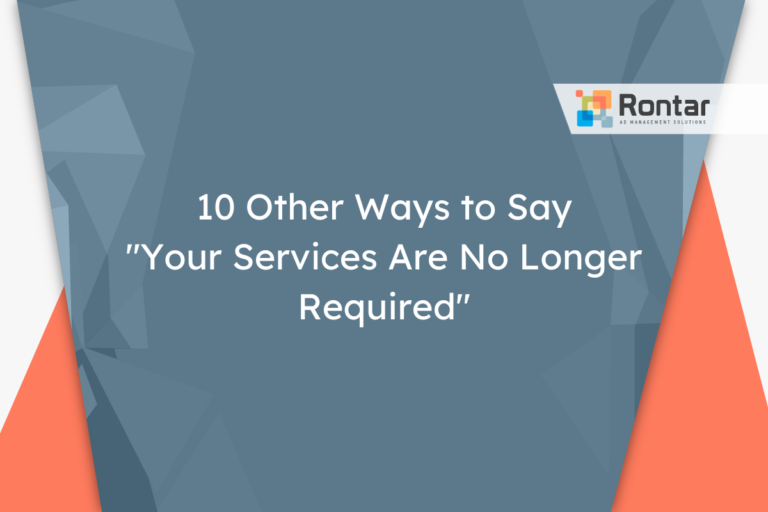10 Synonyms for “Learning Experience”

In the workplace, sharing what we learn from our experiences helps us grow. But, saying “learning experience” over and over can get boring.
This article lists 10 different ways to express that idea, keeping our language fresh and engaging. Each alternative is explored with examples and situations where they fit best in a professional setting.
Is It Professional to Say “Learning Experience”?
The term “learning experience” is considered to be professional, formal, and polite. It’s particularly useful when you want to frame a challenge or mistake in a positive light, emphasizing what was learned rather than what went wrong. This makes it suitable for communication with colleagues, supervisors, or in networking settings. Given its formal tone, it’s most appropriate for use in written communication channels like emails, reports, or professional networking sites.
Email example:
Dear Ms. Smith,
I wanted to share with you the outcome of our latest project. While we did face unexpected hurdles, I view the entire process as a learning experience that has provided valuable insights into how we can improve our workflows and project management strategies moving forward.
I look forward to discussing this with you in our next meeting.
Best regards,
Emily Johnson
The phrase “learning experience” has its pros and cons.
Pros:
- Emphasizes growth and positive outcomes from challenges.
- Professional and suitable for various formal contexts.
- Suggests openness to learning and improving.
Cons:
- May be viewed as a cliché in some contexts.
- Can be vague without specific examples of what was learned.
- Overuse might diminish the perceived authenticity of the message.
Someone might consider using an alternative phrase to “learning experience” to avoid repetition or to more accurately describe the nature of what was learned. It’s also useful to have synonyms in your vocabulary to suit various tones and audiences.
10 Other Ways to Say “Learning Experience”
When looking for alternatives to describe a situation from which you’ve gained valuable insight, here are ten common phrases you can use in a professional environment:
- Educational moment
- Growth opportunity
- Knowledge-building event
- Professional development
- Insightful incident
- Skill-enhancing experience
- Informative episode
- Lesson learned
- Enriching encounter
- Understanding gained
1. Educational moment
This synonym suggests a specific time when learning occurred, similar to a “learning experience” but with an emphasis on the precise moment of insight. It carries a professional and formal tone, making it suitable for workplace emails or discussions.
It’s especially fitting when describing a brief yet impactful insight gained during a project or task. This alternative works well in emails or meetings with colleagues or supervisors where you want to highlight a specific point of learning.
Email example:
Dear Team,
During our last project, we encountered unforeseen challenges, but it served as an educational moment for all of us on effective risk management.
Best,
Michael
2. Growth opportunity
This phrase emphasizes the potential for personal or professional growth from an experience. It’s slightly more informal than “learning experience” but remains professional and is very polite.
It’s particularly useful for messages aimed at motivating or encouraging your team. Discussions around performance reviews or personal development plans are ideal situations for this alternative.
Email sample:
Dear Emily,
The recent challenges we faced should be viewed as a growth opportunity, guiding us towards better strategies in future endeavors.
Sincerely,
Anna
3. Knowledge-building event
This alternative focuses on the accumulation of knowledge over time and suggests a more formal and structured learning process. It’s professional and suitable for formal documentation or reports.
It best fits scenarios where you’re discussing structured learning activities, such as workshops, seminars, or conferences, with colleagues or higher-ups.
Example:
Dear Colleagues,
Our participation in the recent seminar has been a significant knowledge-building event, and I look forward to applying what we’ve learned.
Kind regards,
Lucas
4. Professional development
This phrase is inherently professional and indicates not just learning but career advancement. It’s formal and implies a level of investment in one’s skills and abilities.
This term is particularly apt for use in discussions or messages related to career growth, such as in performance evaluations, training sessions, or when advocating for educational resources.
Here’s an example:
Dear Jessica,
The upcoming training series represents an excellent professional development chance for everyone involved and will enhance our team’s capabilities.
Warmly,
Derek
5. Insightful incident
This synonym suggests a learning point that arose unexpectedly, usually from an incident. It’s professional, carrying a tone that is appropriate for most workplace settings.
It is especially suitable for reflecting on projects or events that didn’t go as planned but offered valuable lessons. This phrase is best used in emails or meetings when discussing project retrospectives or feedback sessions.
Email example:
Dear Project Team,
The system outage last week was an insightful incident that highlighted the need for better backup procedures.
Regards,
Thomas
6. Skill-enhancing experience
This alternative places the focus on the practical skill improvement aspect of the experience. It is quite professional and implies a more hands-on or practical learning approach.
It’s particularly well-suited for discussing training, workshops, or any activities that lead to an improvement in specific work-related skills.
Example:
Dear Linda,
The workshop we attended provided us with a skill-enhancing experience in project management software.
Best wishes,
Roger
7. Informative episode
This phrase suggests a particular event or series of events that provided significant information. It’s professional and polite, ideal for formal or semi-formal correspondence.
Use this when you want to discuss events, meetings, or occurrences that imparted new knowledge, particularly in company updates or team briefings.
Here’s an example:
Dear All,
The client feedback session last Thursday was an informative episode for us in improving our service delivery.
Cheers,
Natalie
8. Lesson learned
This is a universally understood phrase that conveys the idea of learning from experience. It’s professional, and while it’s quite direct, it maintains a tone of constructive reflection.
It’s best used in contexts where you’re summarizing the takeaways from challenges or mistakes. Ideal for reports, emails, or team discussions aimed at improvement and future planning.
Email sample:
Dear Paul,
Our recent project did not go as planned, but it has been a crucial lesson learned for us all.
Kindly,
Sophia
9. Enriching encounter
This phrase implies a positive and rewarding experience, focusing on value addition. It’s professional yet carries a personal touch, making it suitable for a variety of contexts.
This alternative is well-matched for messages or discussions regarding networks, partnerships, or customer interactions that provided valuable insights or outcomes.
Example:
Dear Team,
Our interaction with the innovation department was an enriching encounter, sparking many ideas for our project.
Yours,
Hannah
10. Understanding gained
This phrase straightforwardly denotes learning or comprehension achieved from an experience. It’s professional and effective for conveying the achievement of new insights.
This is apt for summaries or reflections on meetings, training, or other learning activities, particularly in emails or team discussions where conveying gained knowledge is essential.
Email example:
Dear Mentors,
Your guidance over the past month has been invaluable, offering me an understanding gained that I will carry forward in my career.
Sincerely,
George
Final Thoughts
Choosing the right words can make a big difference in how we share our work stories and lessons. Variety in our language keeps conversations interesting and helps make our messages clearer. The alternatives to “learning experience” we’ve discussed offer you a range of options to accurately describe your growth or insights in a professional environment.






